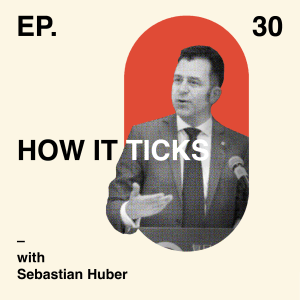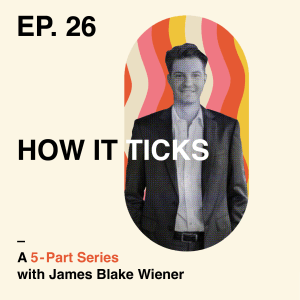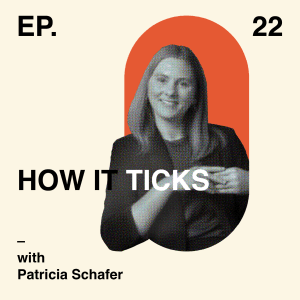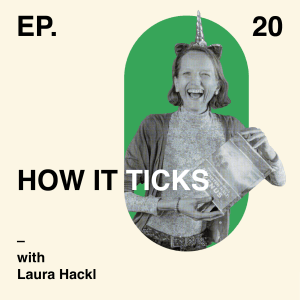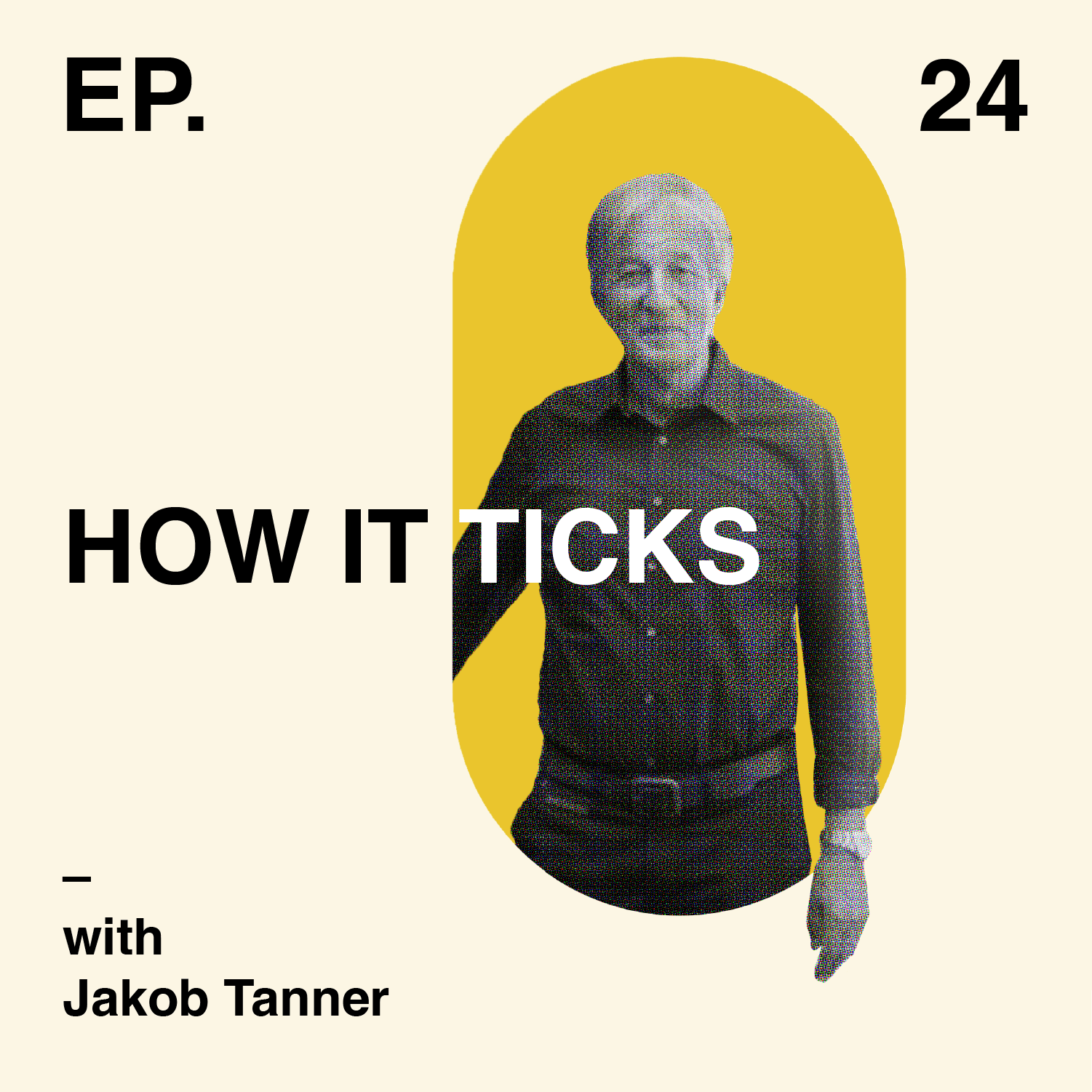
Switzerland’s WWII Story: Navigating Neutrality in a Divided Europe | Jakob Tanner (#24)
Episode Summary
At the height of Nazi power in 1942, Switzerland was surrounded—geographically and politically—by Axis-controlled countries. While the country maintained a stance of neutrality throughout World War II, that neutrality came with trade-offs, contradictions, and difficult decisions.
In this episode, historian Jakob Tanner helps unpack what life was really like in Switzerland during the war. We explore the widespread fear of invasion, the implementation of the alpine Reduit defense strategy, and the political tensions inside the country. Jakob also sheds light on Switzerland’s economic ties to Nazi Germany, including controversial trade relationships and the role Swiss banks played in handling German assets.
We dive into the country’s shifting refugee policies—particularly toward Jewish refugees—and discuss how international pressure shaped public opinion and political response. Finally, we examine what was revealed after the war, what was quietly settled, and what questions still linger today.
Meet Jakob Tanner
Jakob Tanner is professor emeritus of modern history at the University of Zurich and one of Switzerland’s most respected historians. His work focuses on 20th-century Swiss and European history, with an emphasis on economic policy, social change, and collective memory. He served on the Independent Commission of Experts Switzerland – Second World War, tasked with investigating Switzerland’s wartime actions, and is widely regarded for his research into neutrality, financial relations, and Swiss national identity during WWII.
Full Transcript
E24 – Jakob Tanner
Mike: [00:00:00] My guest today is Jakob Tanner, professor Emeritus of Modern History at the University of Zurich and one of Switzerland’s most respected and most prolific historians. Jakob’s work spans everything from economic and social history to the politics of collective memory. He was a leading member of the Independent Commission of Experts Switzerland Second World War, which was tasked with investigating Switzerland’s role during the war. He has published extensively on how Switzerland navigated the 20th century, and is widely regarded as a key voice in understanding the country’s wartime choices.
When you think of World War ii, Switzerland often fades into the background due to its neutrality. But at the height of access power in 1942, it was entirely surrounded by countries under Nazi control or influence. In this episode, Jakob helps me understand what life was like and what it cost to maintain neutrality.
We discussed everyday life for citizens during the war The German invasion [00:01:00] plans that were drafted but never executed, and how Switzerland’s alpine defense strategy, the red. We was designed to respond. Jakob explains what was traded between Switzerland and Nazi Germany, why those economic ties remain controversial today, and what became of the gold and assets the Nazis so famously stored. We also dive into Switzerland’s refugee policies especially towards Jewish refugees and how public and international pressure eventually forced change. Finally, we explore the post-war reckoning. What was uncovered, what was quietly settled, and what questions still remain?
Now here is my conversation with Jakob Tanner.
Jacob, thank you very much for joining me today. I thought I might set the scene by explaining that I have a color coded map of Europe in front of me colors, representing which side of the war each country was on at the height of the axis power in 1942, [00:02:00] where red was Germany, including all of the countries where German was in control or influence.
Green was allied forces, blue was the Soviet Union, and white was neutral. And when I look at this map, it’s very, very red, throughout almost all of it with a little white blob in the middle being Switzerland. With that, for context, what was everyday life like for Swiss citizens during this time?
war. The German
Jakob: Yeah, Switzerland is a landlocked country that is part of Europe and highly dependent in economic terms, so, that you won’t see, in, in any map. Unfortunately, Switzerland is, tiny on air.
Scale, but, considerably big in terms of economic power. Big player in transit trade, this international raw material, commerce, [00:03:00] and also very strong in international assets management.
Also the banking place,
Exports industries were very present. Also combined with capital export Switzerland created a secret empire as Lauren Stuckey an important Swiss writer.
Named it in the 1960s. And Switzerland was also. Subject to power dynamics of Europe in the twenties and thirties.
Economic, depression, social crisis, and authoritarian shift in politics. So we also, in Switzerland, we have emergency laws. In the 1930s, the, um, direct democracy was challenged by groups that, wanted to, shift the political, system. And, when you, when you look at the economic conditions of the warriors, in Switzerland, a sense of [00:04:00] prevailed. Demonstrated economic service, serviceability and expediency and usefulness towards the access power, and especially in economic accommodation with Nazi Germany. And, on the other hand, Switzerland had also themselves as a country prepared for the. That time there was a catastrophic polarization in, Swiss politics. And, there was a general strike at the end of the First World, world War. And the authorities, the Swiss authorities, they worked strongly to prevent such a development in, in, in, in the years after 39. I can perhaps quote the, um, the head [00:05:00] of the Swiss Scientific Nutrition Commission.
He said, two years after 45, 2 years after the war, that, Switzerland was involved in a large scale nutritional experiment for the whole population. But this experiment. Happily being stopped in 1945, just, in a moment when the situation would have become very precarious. So, with this rationing system, with this author, economic and Social Measures, Switzerland, had a, a quite good performance in terms of internal policy.
During the war,
Mike: So there wasn’t a big fear of invasion, which would affecting the morale of the people.
Jakob: there was a fear of invasion. The German au. This [00:06:00] military, apparatus was very threatening, frightening the people, but was against that also. of a spiritual defense, Switzerland celebrated that in the national, exposition in, 1939, just, during, the, the months when the Swiss army was mobilized, at the, beginning of September, 1939.
And, so the Swiss, were quite aware that they, couldn’t perhaps not really stand against the full-blown, full term attack, but, they were mobilized. And this was also a symbolic message.
Mike: And you said, earlier that there was, during World War I huge polarization. Was there also a [00:07:00] polarizing view on what to, what to do and what not to do politically during World War ii?
Jakob: the first World War, 14 to 18, there was such a polarization. And, during the Second World War, there was rather, the country was rather in an integrative, in a, consensual mood and oriented toward, social, equilibrium between the social process. So this was also an i ideology, but there, there were measures directed towards, that, direction.
For example, the. Government introduced at the beginning of the war, a wage and earning compensation scheme for the soldiers that were, at the beginning of the war. More than 400,000 conscripts mobilized, with an average of 800 days during the more [00:08:00] years of, of, service. And for these people, these people, this time, they had the impression that they were taken seriously.
So this compensation was not very generous. It was, it didn’t cost so much, but, it wasn’t an, a demonstration that, the Swiss people this time will have better conditions than, in the, in the war 25 years before. We have also to take into consideration that there was a so-called full market regime regime that is the position of, um, extra constitutional emergency law over the constitution, which not a crowding out effect for the, for legal measures.
So the executive had a very high concentration of decision power higher than in many waring democracies, in, in, in, in [00:09:00] Europe. But this, huge power was not used as in their first world war to, privilege only one class in the country, but to, look for a peaceful equilibrium between the social classes.
Mike: This might be a, sounds like a silly question, but you said with over 400,000 conscripts, if the, what, what are they doing during this time? Is it just constant training and preparation?
Jakob: This depended, very much on the, on the period of, of, of the war. So there were not, 400,000 constantly mobilized. But, after the, the first weeks, we had strong demobilization about hundred, thousand people. And in May, 1940, the whole army was remobilize at the peak of 450,000 soldiers. This was a high share [00:10:00] considered, that Switzerland had at the. And digging into branches from the frontier in direction of, of, of big cities of special importance was the so-called Limmat line. The limit linear. This was, this was, from Eptember. Frontier occupation. And, the intention was to stop the Germans knowing that, the Swiss army was, in terms of weaponry and training, not fit for purpose, but, what would they do otherwise? So, general, the Swiss general who was elected, at the beginning of the war, he stated that the Zurich [00:11:00] was, an absolute obstacle for the remark.
So he, tried to the confidence of the sources in saying that we, we can do. After the catastrophic, capture of the ground army, the French army, he decided to retire in the alpine, massive in the, fortifications in the mountainous region of Switzerland. Thereby, clearing the plateau of Switzerland where the most important industrial enterprises were located Also.
Big, cities, which, up, from that moment didn’t have military protection. But the idea was that, as, as, many, strategies with, strategists, said it to, to win time against space. So we give up the space. We don’t, we cannot defend the [00:12:00] whole country, but we’ll retire in the arts. And then looking what happens, Switzerland was, I, I mentioned it already closely into client with determined war economy.
And there was a popular saying that goes, the Swiss work six days a week for Hitler, and then pray Sunday for, the victory of the Allied forces.
Mike: Yeah, I was going to ask you about the economic cooperation, with Nazi Germany. But first I just wanted to, so it’s interesting you explain the, the thinking of the Swiss general. I’m just trying to imagine as a normal citizen of Switzerland, so people are still getting up on a Monday, going to work, coming home, going to the mountains on a Saturday.
Can you imagine for non-military people, life is just goes on. [00:13:00] Mm-hmm.
Jakob: The victory of the bear market in the Blitz Creek against the French Army was a huge shock. Nobody had expected that such a thing could happen in such a short time. And also General Guisan was completely surprised of, of this, of, of this event. And then they, start to thinking about what will happen next.
And it’s interesting that General Guisan, wanted to redeploy the whole Army forces in a very precarious situation because after the fall of the French Army, the gu pumpers tanks, they were just behind the Swiss frontier. There were hundreds of tanks. Not occupied by, other, other campaigns, and in this moment said, [00:14:00] we have to retire in the Alps.
We have to abandon our trenches. We built months, months and months, in the, in the time before. And, and so in, in retiring in, in the Alps, he made a strong statement. And this was combined with the demobilization of two third of the Swiss army. So 300,000 workers went back to the workplace and the export industry, could, then gain momentum for deliveries to the German war economy.
And so this was a combined strategy. We go in the Arabs and, make the demonstration that Switzerland will be defended. But the main part of, of, of mobilized man, we, with return to the, to, to the workforce [00:15:00] and, again, general gi incorporated that ambiguity in this person in a, in a paradigm way, because, he launched in July. He, gave a, a, a talk on the brutally meadow before the, the whole, army stuff, saying that Switzerland had to, themselves in the historic tradition of assistance against, foreign occupiers. And at the same time, he made the, made the proposition to send, hope note ance commission to Berlin to persuade Hitler that, Switzerland could do [00:16:00] something for the German war economy and that, could be quite important.
So on, at the beginning of August, 1940, Switzerland and Germany, signed, economic treaty and an economic agreement, which, they normalized the, relations between the two countries. So, Germany, tried several times to, put huge pressure on Switzerland, by withholding coal deliveries.
But, in the end, over the years, we had a very, constant exchange of economic goods. And, for me as a, an economic historian, one point is of particular interest because, Switzerland could deliver, very important export codes to Germany. In return, they receive raw materials, [00:17:00] which. Were of great importance for the building of the reduit in the Alps because in 1940 when, when the Swiss army was retired to this mountainous region, the, the fortifications were in a poor state.
And only because Germany delivers coal and raw materials and, other important, stuff, the Swiss army could build a fortification, which was worth its name.
Mike: That’s interesting. So this economic agreement, what was, what was Switzerland? Exporting to Germany mainly.
Jakob: Switzerland had a, a strong, mashing and electric engineering industry. And, these were important [00:18:00] components for the German industry. There were also arms manufacturer, like in Zurich, early Con, who, delivered weapons, 20 millimeter panels, especially to the, to the, to to Germany. And, thereby neglecting the demand of the Swiss, of the Swiss army. So, the Swiss army had to stand aside and made his, big, big, deals with, with Germany in, in terms of quantity. The, this. The Swiss exports were not so important.
So the German war machinery was so huge that, it, it was, it was not off, off of,
importance. What, what, what the Swiss, delivered. But, but, for Burle it was, it was a huge profit. It became the [00:19:00] richest Swiss up to 1940, so the richest man in, in, in, in, in the, country. And, this, one interesting point is that the payment system was a clearing system so that, Switzerland calculated the import against exports, and Termin did that.
So that, no, currencies have to be exchanged. And because, purely wanted the, the, the money for his. Arms exports, export. Immediately, the Swiss Confederation had to, give a huge loan to Germany. So Germany, the, the Swiss, the Swiss government financed, so-called clearing credit over 1 billion Swiss francs.
So against Germany it was 1.1 billion Swiss francs. This was, was quite a huge amount. And, and so then [00:20:00] purely was paid by the Swiss ation for his arms export.
Mike: Was there any trade deal between Switzerland and the allies, and if not was. There ever a threat or could it, could Switzerland ever be perceived as an ally of Germany during this ’cause? It seems like Switzerland played quite a big role in assisting Germany during this time.
Jakob: Switzerland as a neutral country, tried to keep contact with all sites and they had a constant influx of Swiss exports also during the period when the country was completely encircled from, summer 1940 onwards. But, the amount was not so huge, but it was by principle. They also had. [00:21:00] Commercial contacts, export, import relations with the allied countries.
This was not compatible with neutrality law because, from that standpoint you have to be, on an equal basis with the borings and Switzerland tripled the exports towards. Space controlled by Axis Power, whereas the exports towards the Allied powers, were, were reduced to a small amount, but they could, could always insist that there was, there was an effort to keep on exporting also to.
Mike: One thing I haven’t asked you about yet is [00:22:00] the financial operations. So quite famously Switzerland was storing all of the wealth or happy to do banking operations during this time. What did that look like? As I understand it, essentially all of the wealth that Germany collected during their war times, they would be able to essentially store it in Switzerland for safekeeping.
Was it as simple as that?
Jakob: Yeah, it
several. with Germany and one very important field were the gold transactions . So, Germany looted all the gold of the, the Belgium and the Netherlands central banks and the French Central Bank. And, before the war, the rice bank didn’t have any gold reserves, but after they had allot and about four fifth of that looked gold was commercialized through the [00:23:00] Swiss National Bank, who since 1941 at the monopoly in Switzerland to, to, to, to buy this, this gold, which was at the time highly disputed because the Allied powers, they, put Switzerland under increasing pressure. With the idea that they have to, to, to abstain from that, from that, from that type of deal. And, and, for Germany, this was, important because this way they get Swiss francs. And the Swiss Franc was the only really commercializable currency at the moment in Europe. So the, the dollar for determines could not be an alternative.
And 43, the Germans get the money to buy, for example, strategic resources like [00:24:00] for, um, armor piercing ammunition and, and, and other, other, raw materials Through this, both transactions and, the, the currency, the Swiss currency, they could buy it
Mike: You mentioned already that the Swiss Clearing office after the war found over a billion frank in German assets in Switzerland, much of which had arrived after the war began. Did Switzerland ever give any of it back? I guess talking about the gold, the countries in which it was looted from,
Jakob: as to the assets transferred during the war towards Switzerland. You have to distinguish between the dormant accounts, which were left in Switzerland [00:25:00] as the. From side of the victims of the Holocaust and, transfers made by Germans perpetrators, direct perpetrators, or not towards Swiss banks. So the, the Allied forces, they had a big fear that Germany turn table to, safeguard their economic strange in a moment of, military defeat.
So this was the operation Safe haven which wanted to prevent German actors to their, their assets in the, in the. At the numbers, you have no serious information because, it, it was clear that the allies, they wanted, restitution of the, of the looted gold Switzerland had to pay one quarter of a [00:26:00] billion as as compensation, but, as to the, to the German accounts in Switzerland, they were just freezed but not paid out. And Switzerland waited then up to 1949 when the German Federal Republic emerged. And then up to, 1952 when in London there was a great, conference on all financial matters left over from the period of the Second World War.
And at this moment, they, could. Have an arrangement with, especially with the, Americans, that they pay hundred millions for free to, the former Allied forces, and then could repay the whole sum to the German owners without, without disclosing their identity.
So at this moment, they, they invented, a new, [00:27:00] kind of taxation. So the Swiss state taxed this, assets and sent the money over to the, chairman government without saying from which person that came. So the estimations, they are, there’s a huge range. The Swiss, they insisted that this was about 1 billion, assets coming from Germany.
Um, observers who had little bit, better overuse that there were three to 4 billion Swiss francs. And one, chairman war administrator said it was 17 billions. So there, there was, very great difference in estimations. You cannot, control that because there was, this, this whole, repayment possibility was, was protected by the, Swiss banking secrecy, which was, under criminal law, protected under criminal law since the 1930s.
So, so [00:28:00] the, the, the, there is no transparency what happened at that moment, but you can say that there are also thousands of Jewish owners of Swiss accounts who then could not, order, order accounts to be paid out because they were just murdered during the Holocaust. And what did Swiss Banks with this type of account, so they become the dormant, which means that there was no further information, there were relatives or, organiz Jewish organization who, said that they, they want a certain type of agreement with the Swiss banks, on the basis of an estimation how much it could be. So these Jewish owners were not very rich. Mostly they try to diversify their assets in, opening also a Swiss account, also investing in, in insurance [00:29:00] policy in Switzerland.
But, but, the Swiss banks, they said that, they are strictly on a legal basis and without, this certificate, you cannot have the money back. So this was then, in Switzerland, the idea that you have to bring, this certificates from Auschwitz to have the possibility to, to, to. Paid out. And, and so this, this many accounts, they were dormant over decades.
They were, reduced by, huge commissions and then in the end they were, were dissolved.
Mike: They were dissolved. What happens to what was left?
Jakob: What was left then in, in the beginning of the sixties, there were huge international pressure. The Swiss governments introduced the so-called, which means that the banks in self [00:30:00] responsibility had to, draw up an investigation over the whole issue. The banks agreed, but then 10. Zero result, near zero result. So they say there’s no problem. And in the 1990s when, after the Cold War, when, in general, many peoples now could travel and new, archives opened then, the pressure on, of, on, on Switzerland, was, was mounting. And I was myself a member of the, in, independent, commission of expert Switzerland, second World War, where we had to, undertake, an investigation in the dormant accounts.
In parallel the Jewish, American complaints, they, negotiated with the Swiss banks. And in August, 1998, they concluded the general agreement and paid, one [00:31:00] point. $5 billion, which was 1.8 billion Swiss francs. They paid that to a, a Jewish distribution organization, which was, at the time a huge amount, but considered with about 30 billions of, payments. Only the credits had to pay since, the turn of the century. This was not so.
Mike: [00:32:00] On the topic of. The Jewish people. I think that’s a good segue into asking you about refugees. My understanding is Switzerland initially maintained quite a strict refugee policy, especially towards Jewish refugees, and really there was tens of thousands turned away at the border.
What did it look like and how did it evolve during the war?
Jakob: There were since the first World War, a sense of so-called Uber Friend, which may be translated by over foreign and Switzerland, feared to be invade by too many foreigners. And this in a period when the share of foreigners at the, this population was, substantially reduced. It, had a, an all, all time low in, in 1941 with 5%.
So it was. But, rather a [00:33:00] fear. And this fear was strongly connected with antisemitism. So over foreign is to a certain degree, a code word for anti antisemitism in, in, in Switzerland. And, from this background in 1938 when, Hitler invaded Austria, so the so-called, Switzerland feared that many Jews, many Austrian Jews who were persecuted from the first day onwards, they were exp their enterprises were. And, and, and were, were sold out at very low prices to, competitors, especially of alien descent, as, in, in the language of the, of, of the time. So the Switzerland wanted to control its border, and they proposed to introduce a general [00:34:00] visa, measure, but Germany didn’t want that. So they agreed to, to allow the Germans to stand the, in the passport of the tools, which then reduced the possibility of these refugees, not only to enter Switzerland, but any other country, because when they have to the passport, the following years during the, the war, Switzerland introduced an illustrated distinction between political and racial refugees, which meant that the Jews were considered by Switzerland not to be persecuted, politically, but solely on racial ground as it’s written in official document. So we had in Switzerland passed some hunter, asylum seekers, which were accepted.
The other, refugees were on, on [00:35:00] racial, religious grounds, which Switzerland did not accept. When you, make up a, a balance sheet, about 50,000 refugees could come to Switzerland, but about 20,000 among them, many tools were, threatened by, by, by, death were rejected. And many of them died in the, extermination camp in Auschwitz and.
Mike: So you, so as an example, you had two people fleeing Austria, one of them Jewish, one of them. And at the border, they get checked for their identity. And essentially, if you are Jewish, you have to stay behind. But if you are any of any other religious background, you’re welcoming to Switzerland.
Is that right?
Jakob: Prescription were, were [00:36:00] generalized, but there were, under the given circumstances, many Jews who tried to, to, seek refugee in, in, in Switzerland. So the Jewish refugees are mostly concerned, and then Switzerland, introduced, along also protests from part of, of the population , for example, were were accepted, but, other members of, of the family not. And, this, this was in constant change and could be interpreted by, local and regional authorities in different ways. For example, the of Basel, who was governed by a social democrat majority accepted much more refugees than, for example, Geneva, who, especially with the exposed position of that Canton, that they were, they could [00:37:00] be over flooded or, or, or, threatened by, by, refugees. So you, you had, you had, you have to, to differentiate and in our report on the refugees refugee politics, in, in Switzerland, during that time, the, the, Commission of experts, had many, examples, that showed how different the situation was on, on.
Mike: And Switzerland being famous for its, public, , contribution to political decisions and the referendums. During this time, were any of these decisions Canton only or federally up to the people to decide what they did?
Jakob: The direct democracy continued under the law regime to a certain degree. [00:38:00] So, there, there was, for example, an, an, an referendum about the duration of the military preparation time. And this was during the war, rejected by the, they wanted to prolonge that period. And Swiss, the Swiss, population rejected that.
So we have to, we have to note that Swiss democracy was. Exclusively male. And that had to do with the concept of the militia, the, the, the militia principle, which governs the, the, the army. So man, they thought that they have the obligations and this allowed them to have all the political rights and this celebration of the military defense after the war prevented Switzerland, introducing the female vote.
Up to 1971 on a national level. [00:39:00] So this was, during the Cold War, an ideology that Switzerland, was, was, um, a full work of resistance and, and, did all things right. And this was because the, the men were so courageous and then they, they claimed that, women had nothing to do with, with that kind of politics.
But, I returned to your question. There were also, there were also, referendums about.
This was something that the government tried to introduce with popular support that Switzerland could use in the, could use the, the war period to modernize the, the tax, the tax system. So they introduced at the same time, value added. Tax and the direct tax on income and, and on, [00:40:00] on, on fortunes.
And this was considered to be an, an, an, an equalizing process so that, the value added tax, was, especially charging the, the broad start of the population. And then the direct tax was a progressive tax, in which the, the rich pay more than the poor. So, they tried to, to substantiate the, the concordance democracy.
So a democracy who integrates all the important political forces, through the, the, the, the debate on, on, on, taxes, which also means who, who pays how much for, for this.
Mike: Mm. Now I wanted to go back to the. German invasion. I actually learned from a previous guest on this show, Dick and Bees, [00:41:00] that there are official German invasion plans of Switzerland, and although they were drafted, obviously they were never executed. What do we know about the German invasion plans of Switzerland?
End.
Jakob: Generally speaking, Hitler was completely enraged about Switzerland, so there were many outbursts against this small democratic, decentralized country, and I, I quote him in 19 2, 19 41. Switzerland is the most disgusting and miserable. First quote, the Swiss are the mortal enemies of the new Germany. So there was, there was, there was, there was a threat. And when we go further than, there were also plans for a partition of Switzerland among its [00:42:00] surrounding countries such as the Romani, would be awarded to Wishi, France to Italy, the northern, central Eastern, part of German speaking Switzerland to, to Germany.
But, when you, now focus on military plannings, there was a huge series of, of such, military operation plans called Tannenbaum in Autumn 1940. And the point that, has struck me especially was that in, several of that plans, especially in one dated October 4th, 1940, there was stated that the Swiss militia army would deliver a stop on or resistance that the Swiss marksmanship is excellent. That is, minutes man are, are, threatening. But at the end they say that, I quote it, [00:43:00] therefore seems, at least doubtful whether Switzerland will take up arms against the joint military action by Germany and Italy capitalition seems more likely.
So they judged the, the Swiss resistance, spirit to be very bad. And I would say this was misjudgment, but it was the basis of decision in the German army stuff. And for this reason, I’m looking for author. Grounds that could explain why they didn’t invade, Switzerland.
And there were many economic reasons. So Germany was interested in the coal transactions in having a financial place in, um, arms deliveries and all that. When you look at the irrationality of its decision making, this was surely not, survival guarantee. And then, when you, when you go first [00:44:00] reflecting, all these, these reasons, then perhaps, the most, plausible is that, Switzerland is both in the, that angle of the German earmark strategic theater and of operations.
And that conquering Switzerland would have had little strategic gain and not Germany. With other military matters. And, it’s quite clear that without, the victory of the Allied troops, Switzerland wouldn’t have survived as a democratic country. So the Germans soldiers, when they went south to Italy through the perimeter, they, they ched, Switzerland, porcupine, we take it when we come, comes in home again.
Mike: You mentioned the red we, the National Defense Strategy already, and I, I wonder how do you [00:45:00] think that would’ve held up if Germans went through with their invasion plans? If you had to have a guess.
Jakob: Yeah, in, in my, in my view, the, the plan was especially, very good. So in the Swiss army, there was a, there was quite clear everybody feared that German invasion, wanted to fight against that. But the way to prevent that, there were, there were a very, very, different, ideas how Switzerland could come to that point.
And that the pro German faction who admired to a certain degree resolve and the nation building of Germany and were oriented to their Germany, um, always stating that Switzerland has to be apart. Not, not joining Germany, but um, nonetheless, admiring Germany. They wanted to, to, to, wanted, general Sison to quit [00:46:00] because General Sison was strongly on the side of the French and before the war, he made, military punctuation with the French general staff how to integrate the Swiss army in a, in a, in a front against, against the attackers. And they now, against France. All these documents were transmitted to the German general staff who informed, part of the Swiss general stuff that, giong had violated the neutrality as they saw it.
And so Channel GI was in a very precarious state, and in retiring through the Alps, he could communicate himself as a grantor of Swiss independency. And as I mentioned already, he thought that the German would not be enough to invade Switzerland. So he was, um, quite along with the, financial [00:47:00] markets. Had the same wavelength with the financial markets. Two colleagues of mine, they, made a study on, on, how, how the share prices oscillate. And they had the hypothesis that when the, the share prices go up and down, then the actors expect a huge change. But in summer 1940s was completely common.
So the investors, they did not expect, a huge, change of the status of Switzerland in Europe. And this was also, general persuasion. So I. Perhaps the re retiring the army in the red, who that was not already built. And, it was, it was you, you, you abandoned trenches you have built against, against, in invasion that, Switzerland could perhaps [00:48:00] stabilized, stabilized the claim of national sovereignty with troop, enclosed in the alts.
Then, starting attacks, from, from the stronghold against, German, German invaders for British, generals like Montgomery. This was a complete nonsense because, the British General said, so the, the, the information about, about, largest part of the Swiss population, Boston, exposed by, by, by the German roots. That would, that would be, that would be, a complete psychological catastrophe or the socialist in the, in, in the alpine resort. So, so, the whole, the whole strategy worked only when Switzerland was not attacked.
And, one important point is that, Switzerland was not attacked because it was [00:49:00] neutral, but, but it could continue to be neutral because it was not attacked. So the case of Belgium showed that neutrality, per se, will not spare you, overrun.
Mike: Interesting. Can you describe what the reduit was exactly? They needed huge amounts of resources to build it. Um, what, what did it look like? I.
Jakob: It was a system of, connected tunnels and, cannon stronghold in, the mountain directly in the, in, in the, in the mountains. So, allowed the Swiss army to maneuver in this, in this alpine region and, to, to play out, the local knowledge they had. And, to have an army in, in, in the mountainous era where no tank can go in, you can fly over with your [00:50:00] stu. But, this, this system very costly because, the Swiss, were bunked in the, in, in, in the tunnels.
And, and, step by step, this system was, was interconnected from the. Up to Sargans in the part of Switzerland, you could maneuver in the, in the red for the soldiers. This was, very, dire situation because they had to do long marches from one mountain to another.
And, and there was also a, um, a, a longing for, for the end of, of the war that over, over the years and was especially high in 1945 when the Swiss Army, and this is also interesting, was not demobilized on May 8th or ninth, 1945, but were, was, mobilized up to August, [00:51:00] 1945. Prevent uncontrolled frontier events, the refugees coming after, the war, just to protect the country, in the, in, in the bonds.
After, the unconditional capitalization of the We Market,
Mike: I mean, I’m shocked when you said from valleys all the way to, that’s the whole country.
Jakob: it was the Al Alpine region where, where, Grassi nobody lived, all other than, some small mountains villages. It, it is an, is an era which, which, had no, industry, no. Culture. So, um, the point of the culture is perhaps important to mention because there was in November, 1940 the so-called Bain, which, meant, re culturalization of, of, the of, of Switzerland by [00:52:00] tripling the amount of, land on which potatoes or cereals, should be produced.
They stock that in 43, but, from Alpine regions. There was also stronger assistance against that, that, that, huge project to reorganize Swiss agriculture under war conditions. So you, you have, for example, a film on the black Tanner. So that was also figure from a, a novel from a famous Swiss author, showing how, peasant in, in, in the canton of Schwiez resisted this, this, I idea that he had now to, grow, cereals instead of having his, cows and, going on with this milk economy.
Mike: Well, we’re out of time and unfortunately, we’re out of time because I have listed probably more questions than I started with. Maybe just one more, if that’s okay. Um, which is [00:53:00] how long did it take for the Swiss people to rebuild its relationships with Germans after this war?
Jakob: Switzerland after the war tried to establish good relation to Western Germany. This was under the umbrella of the Cold War. The anti-communist sentiments were very, very strong. Switzerland’s neutrality had, a very bad reputation in 1945. And, in 1955, it was, it was then a, a huge example for the, state Treaty of Austria serving as a model for Austria.
So you have a, a, a regain of the concept of neutrality, and they try to, to come to, to terms with the new, German [00:54:00] Federal Republic. So, for example, the collaboration billion, they paid in 1941 just to serve Hitlers attack on the Soviet Union were repaid by more than half of the sum.
And invested in the electrification of railways in southern Germany. So this was, a very nice force with export industry, which had to gain new ground, open new markets. And, and so in general, the, the relations were relatively good. Switzerland didn’t want to accept their, their role. They played in the, in the second World War.
So there was so-called Reduit Mutuals, whereas the army went out of this alpine resort shortly after 1945. Mentally Switzerland stayed for decades in this [00:55:00] fortification system thinking that, they did a very good job during the war years and that critic is not allowed. And, it was then in 1968, this movement and also, new dynamics in historical research since the seventies that all these questions we now talked about, came up and, and, shifted.
Also the, the self understanding of, of Switzerland, which is today much more critical than it was in the 1950s and sixties. This, one, one, continuity was, was, good relations to Germany, but not, um, a willingness to join the. European integration process, which was for France and for Germany.
And, and yeah, a lesson of, of history and absolutely [00:56:00] important, up to today. So, Switzerland just wanted bilateral connections.
Mike: . Very interesting. Well, Jakob, I really thank you for your time.
Jakob: Thank you for having me in this podcast and yeah, have a nice time.
Mike: Thank you. You too.

